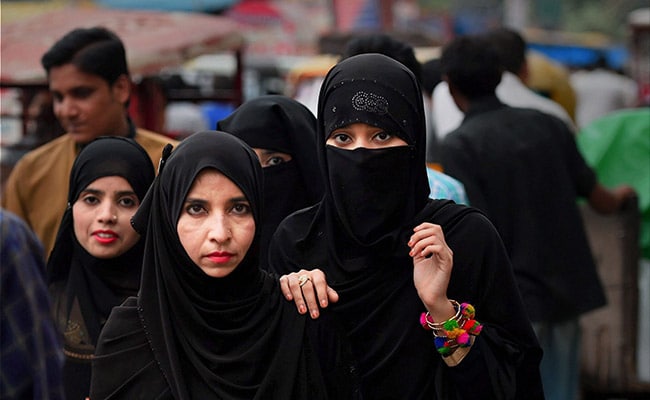
The first step to make instant "Triple Talaq" - the Islamic practice that allows men to divorce their wives immediately by stating "talaq" (divorce) thrice -- a criminal offence was taken up in parliament today. A bill was introduced in Lok Sabha that proposes a three-year jail term and a possible fine for any Muslim man who indulges in the practice. The law will also apply to instant "Triple Talaq" in any form -- as in writing or by electronic means, such as e-mail, text message and WhatsApp. The government's move comes after the Supreme Court, in a landmark ruling in August, said "Triple Talaq" also called "Talaq-e-Biddat" -- was unconstitutional and violated the fundamental rights of women.
Here is your 10-point cheat-sheet on this big story:
The Muslim Women (Protection of Rights on Marriage) Bill - drawn up by a group headed by Home Minister Rajnath Singh -- makes instant "Triple Talaq" in any form "illegal and void". The bill was introduced in Lok Sabha by Law Minister Ravi Shankar Prasad.
The proposed law would also give the woman the right to approach a magistrate seeking "subsistence allowance" for herself and her minor children. The woman can also ask for the custody of her minor children and the magistrate will take a final call on the issue, the draft law says.
The August ruling of the Supreme Court came after appeals from several women, who had been divorced by electronic means, including Skype, WhatsApp and Facebook. The women had urged the court to end the 1,400-year-old practice.
The Narendra Modi government had sided with the petitioners, saying "Triple Talaq" was unconstitutional, derogatory and discriminatory for women. Earlier, PM Modi had spoken against the practice and pledged to protect the rights of Muslim women.
A majority of the five-judge bench, drawn from five different religions, held that "Triple Talaq" "is not integral to religious practice and violates constitutional morality". Three of the five judges said it violates the tenets of Quran.
"Triple Talaq" had been considered legal for the country's nearly 180 million Muslims to end marriages, although it is not allowed in several Islamic nations, including Pakistan.
The BJP has long pushed for a uniform civil code, which would stop religious laws operating in issues like marriage, divorce and property inheritance. Religious institutions were initially allowed to govern these issues to protect the independence of different faiths.
Muslim organisations have long opposed any attempt to curtail the use of religious laws in civil issues. But the argument of the All India Muslim Personal Law Board -- a non-governmental body which oversees the application of Muslim personal law that came into force in 1937 -- was over-ruled by the top court.
The practice of Instant "Triple Talaq" came under increasing criticism as reports emerged of men divorcing their wives through Skype, WhatsApp and phone text message, leaving families destitute.
But even the Supreme Court's ruling on the matter has not stopped the practice. Last month, a professor from the famous Aligarh Muslim University was accused by his wife of divorcing her through a text message.

